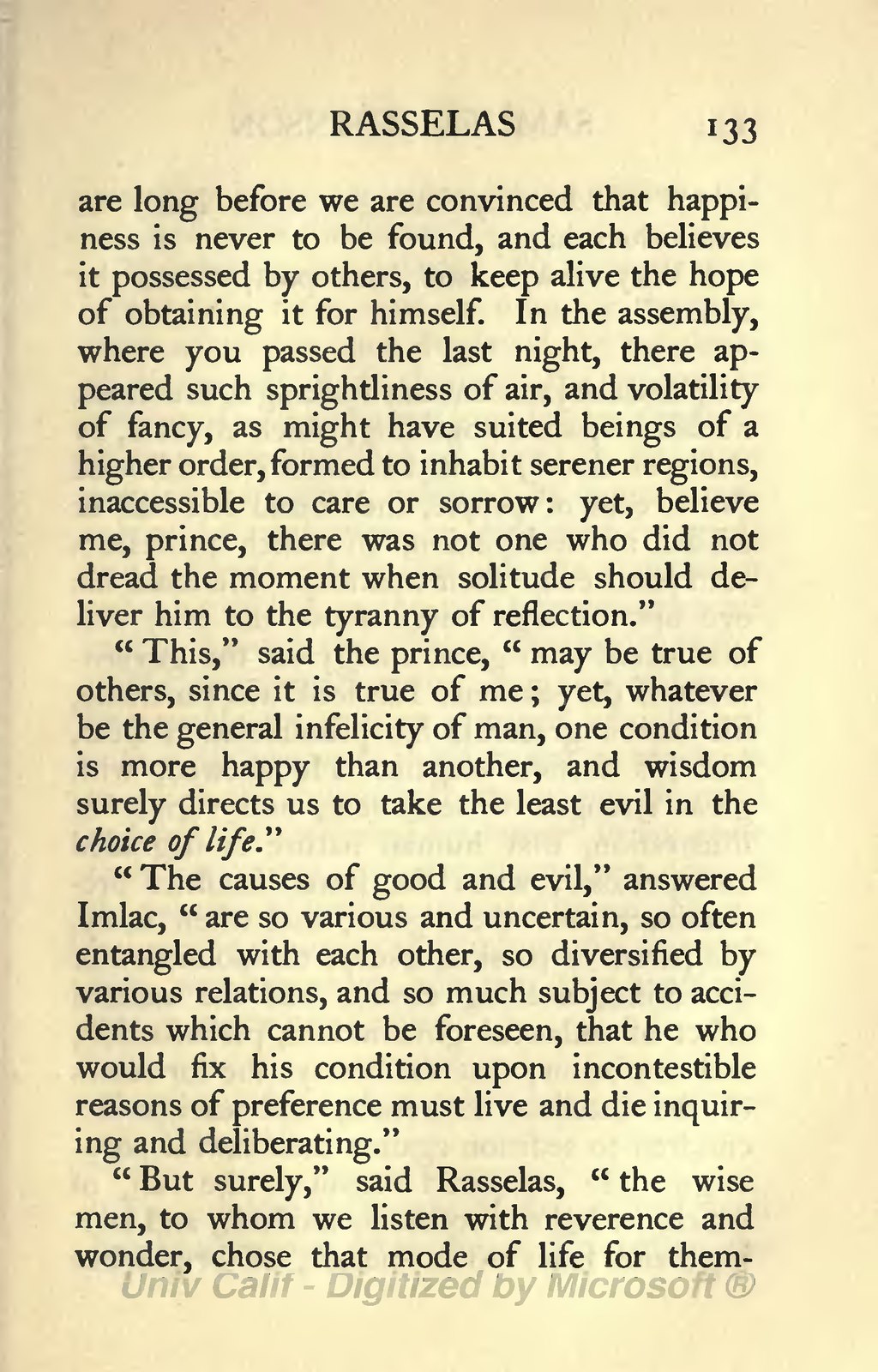are long before we are convinced that happiness is never to be found, and each believes it possessed by others, to keep alive the hope of obtaining it for himself. In the assembly, where you passed the last night, there appeared such sprightliness of air, and volatility of fancy, as might have suited beings of a higher order, formed to inhabit serener regions, inaccessible to care or sorrow: yet, believe me, prince, there was not one who did not dread the moment when solitude should deliver him to the tyranny of reflection."
"This," said the prince, "may be true of others, since it is true of me; yet, whatever be the general infelicity of man, one condition is more happy than another, and wisdom surely directs us to take the least evil in the choice of life."
"The causes of good and evil," answered Imlac, "are so various and uncertain, so often entangled with each other, so diversified by various relations, and so much subject to accidents which cannot be foreseen, that he who would fix his condition upon incontestible reasons of preference must live and die inquiring and deliberating."
"But surely," said Rasselas, "the wise men, to whom we listen with reverence and wonder, chose that mode of life for them-
